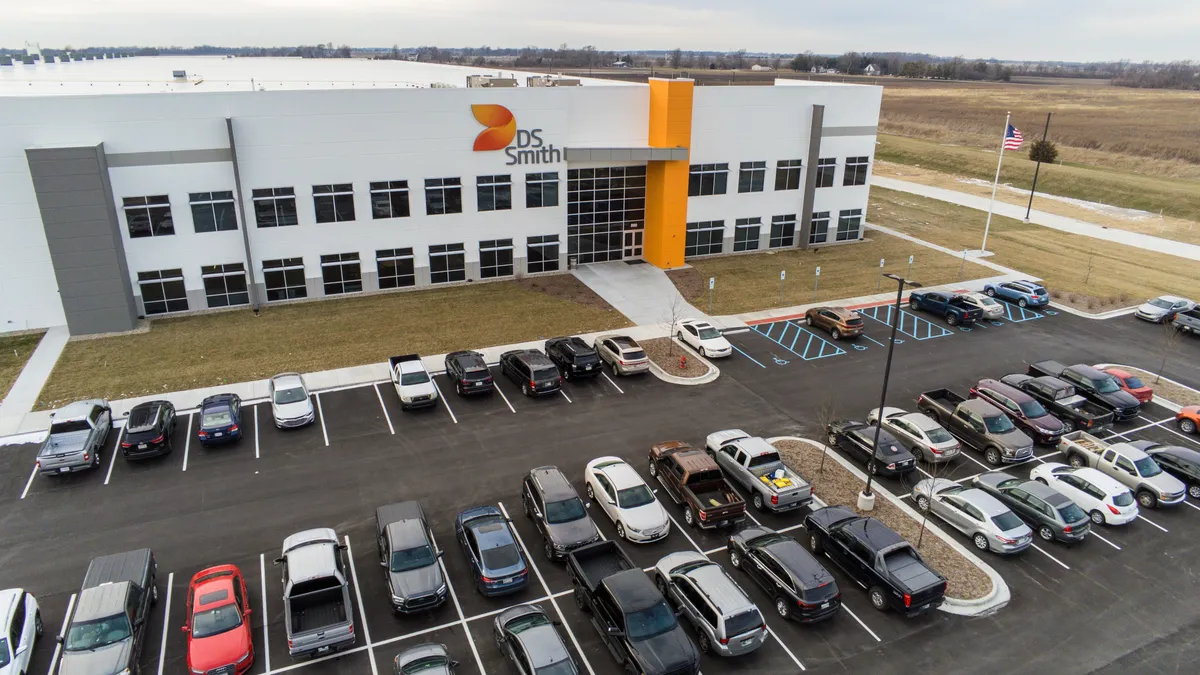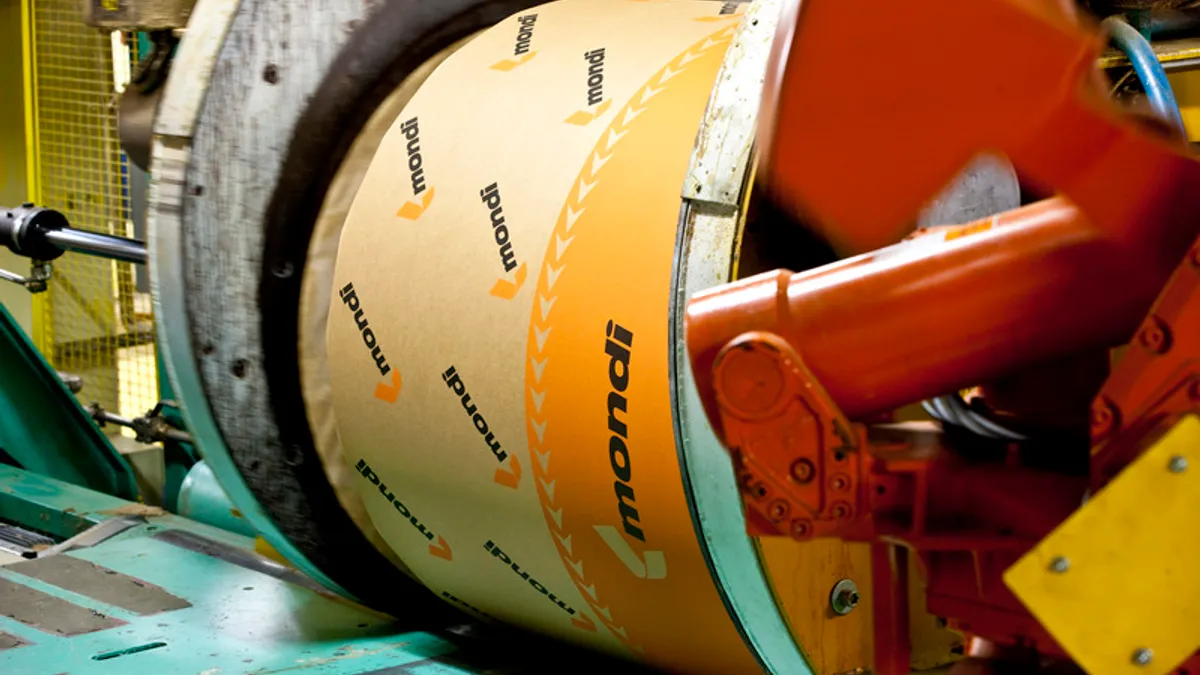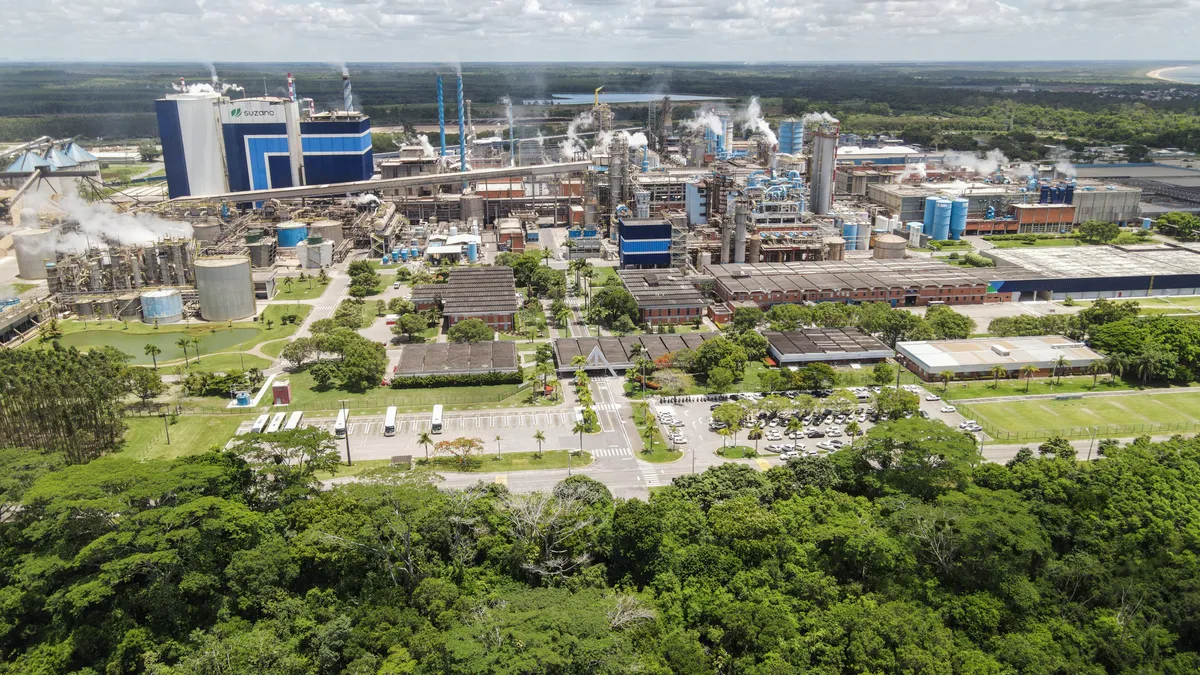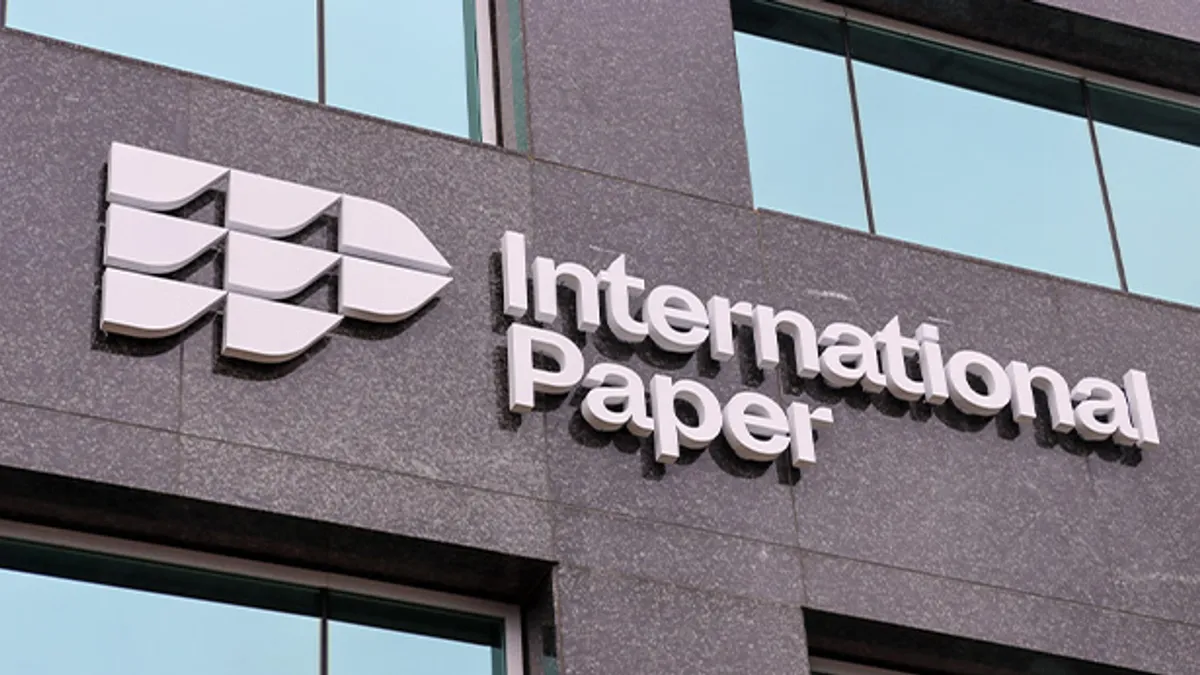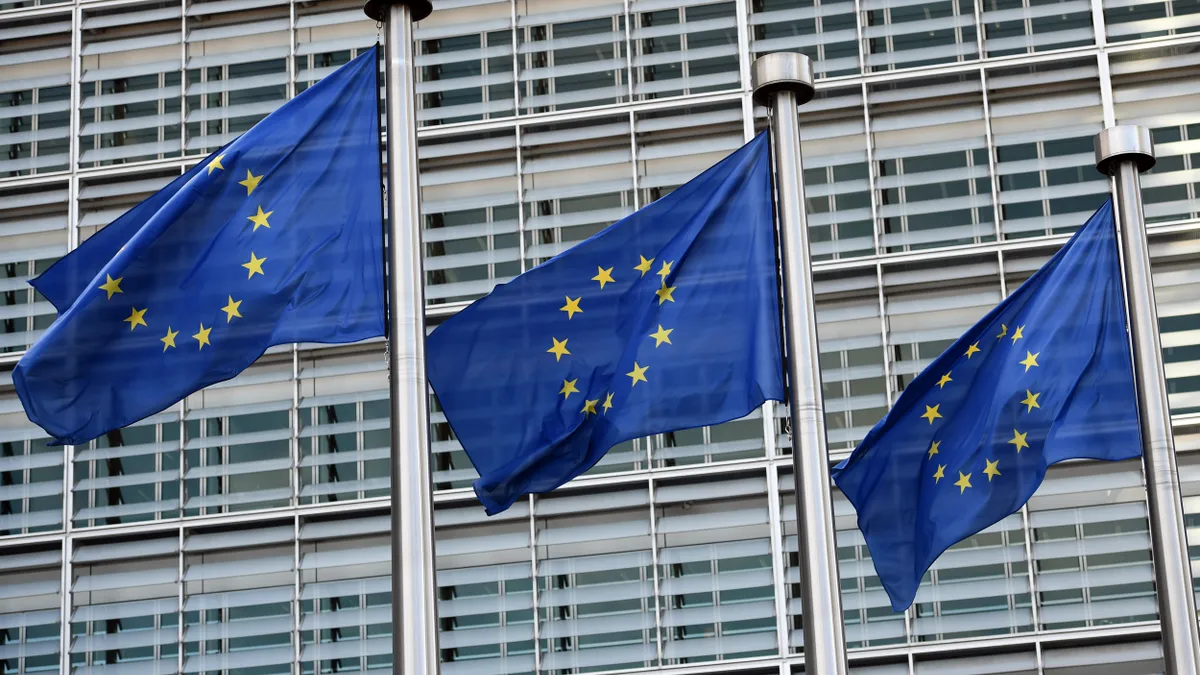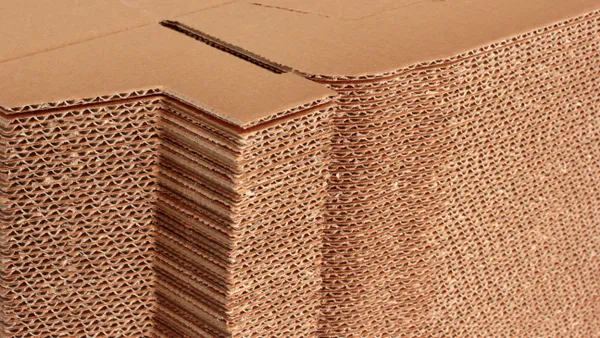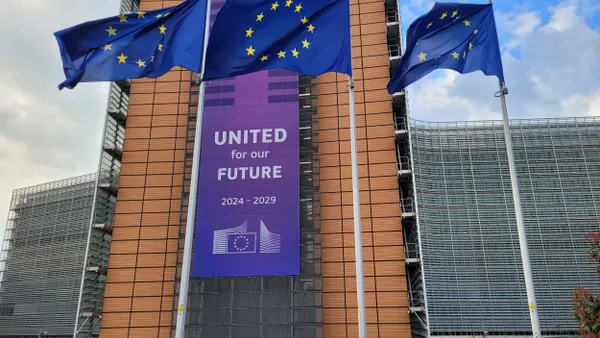And then there was one. The takeover battle that emerged this year for DS Smith appears to have reached a conclusion. On April 16, International Paper announced it had agreed to acquire DS Smith, and Friday Mondi said it would not submit a counteroffer.
Either IP or DS Smith could still walk away from the deal. IP would have to pay a termination fee if it did so. M&A deals in the U.K. typically do not have a two-way termination fee, or “breakup fee,” which is customary for U.S. deals. The two-way clauses name a penalty — often 1% to 3% of the deal's total value — that the seller must pay if it backs out of an M&A transaction. DS Smith could still nix the IP deal without penalty to accept a counteroffer, although analysts say such moves are rare.
Barring any uncommon actions, the two parties now look ahead to the approval process for a transaction poised to give International Paper a strong presence in Europe and add more than 230 facilities to its footprint.
Creating a global fiber giant
Initially, International Paper surprised many analysts and industry observers with its March 26 announcement that it was throwing its hat in the ring, effectively creating a bidding war with Mondi for DS Smith. The move was unexpected given the company’s focus on “rightsizing its portfolio over the last 10-15 years,” said Michael Roxand, senior paper and packaging analyst at Truist Securities, in a March 27 note to investors.
An April 16 IP filing with the U.S. Securities and Exchange Commission suggests the company has been considering the move longer than publicly discussed: It revealed it put in place a confidentiality agreement with DS Smith as of Feb. 27.
After IP released its formal offer on Tuesday, Roxland issued a note saying “we remain incrementally more constructive on the deal than when it was first announced in late March.” He had explained in an April 4 note, following IP’s release of additional information about its proposal, that although “we were initially skeptical of the deal given IP’s focus on portfolio right-sizing, our sense that it had more modest growth ambitions in Europe and a CEO transition, on the surface it appears that the deal could be accretive, affording ~27% upside to earnings by our calculations.”
The transaction would strengthen IP's presence in the European market, analysts say. And IP said the DS Smith box network in the eastern region of North America would provide more offerings to customers.
“For International Paper, if they get DS Smith, they're capturing a huge chunk of the second-biggest corrugated packaging market in the world,” said Joe Iorillo, corporate research analyst at The Freedonia Group. He explained that more than 85% of IP’s revenues comes from the U.S. market, and only about 8% comes from Europe, whereas “DS Smith alone gets about 70% of its revenue from, I think, the U.K. and France combined — so [International Paper] will have much greater exposure to the European market” if the deal goes through.
The companies’ footprints don’t contain much overlap, resulting in a low risk of regulators requiring divestitures for transaction approval. That’s different from International Paper’s acquisition of Temple-Inland in 2012, during which the U.S. Department of Justice required divestitures of three containerboard mills before approving the $4.3 billion transaction.
IP’s divestment last year of its joint venture in Russia further reduces potential overlap that could draw regulator scrutiny, said Mike Richardson, packaging analyst at The Freedonia Group. “The corrugated board market is such that I don’t think it would create some sort of anti-competitive situation,” he said. IP executives similarly noted on Tuesday’s call that overlap is minimal and they’re not concerned about regulatory hurdles.
The potential international footprint changes drew comparisons to another major fiber packaging acquisition in the works: Ireland-based Smurfit Kappa’s announcement in September that it would acquire Georgia-based WestRock. That deal, expected to close in July, also is not expected to face major regulatory barriers.
“This feels a lot like what WestRock and Smurfit Kappa were doing when they announced [their M&A deal]. Those complementary geographies [are] very much the same way here,” said Jennifer Christ, manager of consumer and commercial goods research at The Freedonia Group.
Both potential transactions would create international megacompanies for fiber packaging. According to Iorillo’s calculations, “the combination of [International Paper and DS Smith] will amount to about, close to 18 million tons of corrugated container board capacity. And that's a lot. But it's actually somewhat smaller than the capacity that WestRock and Smurfit Kappa would have together ... about 23 million tons.”
Without the DS Smith merger, International Paper could lose its position as the global leader in box volumes, analysts suggest.
“In the last edition of the global study ... IP was No. 1. And then the estimate was that the WestRock-Smurfit Kappa deal would nudge them ahead. But then this acquisition [with DS Smith] keeps IP up in front,” Christ said.
Shuffling and eliminating positions
In its April 16 report to the SEC, International Paper described how the two companies would strive for minimal negative impacts to employees during the combination process, and it does not intend to have mill or plant closures. However, it also noted that the business combination would result in an estimated 400 redundant job positions, representing 0.6% of the combined workforce. Any layoffs would be subject to review, according to IP’s SEC filing, and they likely would focus on the two companies' corporate, head office and senior management positions.
IP had announced three closures in October 2023 that would result in 900 layoffs. Days later, CEO Mark Sutton discussed on the company’s third-quarter earnings call how the actions were intended to “optimize our mill system and reduce fixed costs.” He reiterated the sharp demand downturn that IP, and the greater fiber packaging industry, had experienced in recent quarters, noting that the “depth and duration of this downturn” was “not like anything we’ve seen since we built the industrial packaging business, starting in the mid-2000s.”
Any layoffs resulting from the possible business combination would come during a period of upheaval for both companies' C-suites. International Paper announced in September that Sutton would leave his role after 40 years with the company. In March, it named Andrew Silvernail as Sutton’s replacement as of May 1.
IP confirmed in the recent acquisition documents that Silvernail would be the CEO of the newly combined company; DS Smith CEO Miles Roberts would serve as a consultant to aid the integration. DS Smith had announced in December that Roberts planned to retire by Nov. 30, 2025, and would recruit a successor.
In theory, no successor would need to be chosen under the combined corporate structure that IP laid out with Silvernail as company head. The rest of the leadership structure is less clear, especially considering IP’s decision to maintain DS Smith’s London headquarters as its new Europe, Middle East and Africa headquarters.
The combined company will primarily list on the New York Stock Exchange and secondarily will retain its London Stock Exchange position.
International Paper CFO Tim Nicholls said on last week’s call that additional financial details will be disclosed later this summer as the companies prepare their proxy statements. The deal is expected to close in the fourth quarter.



